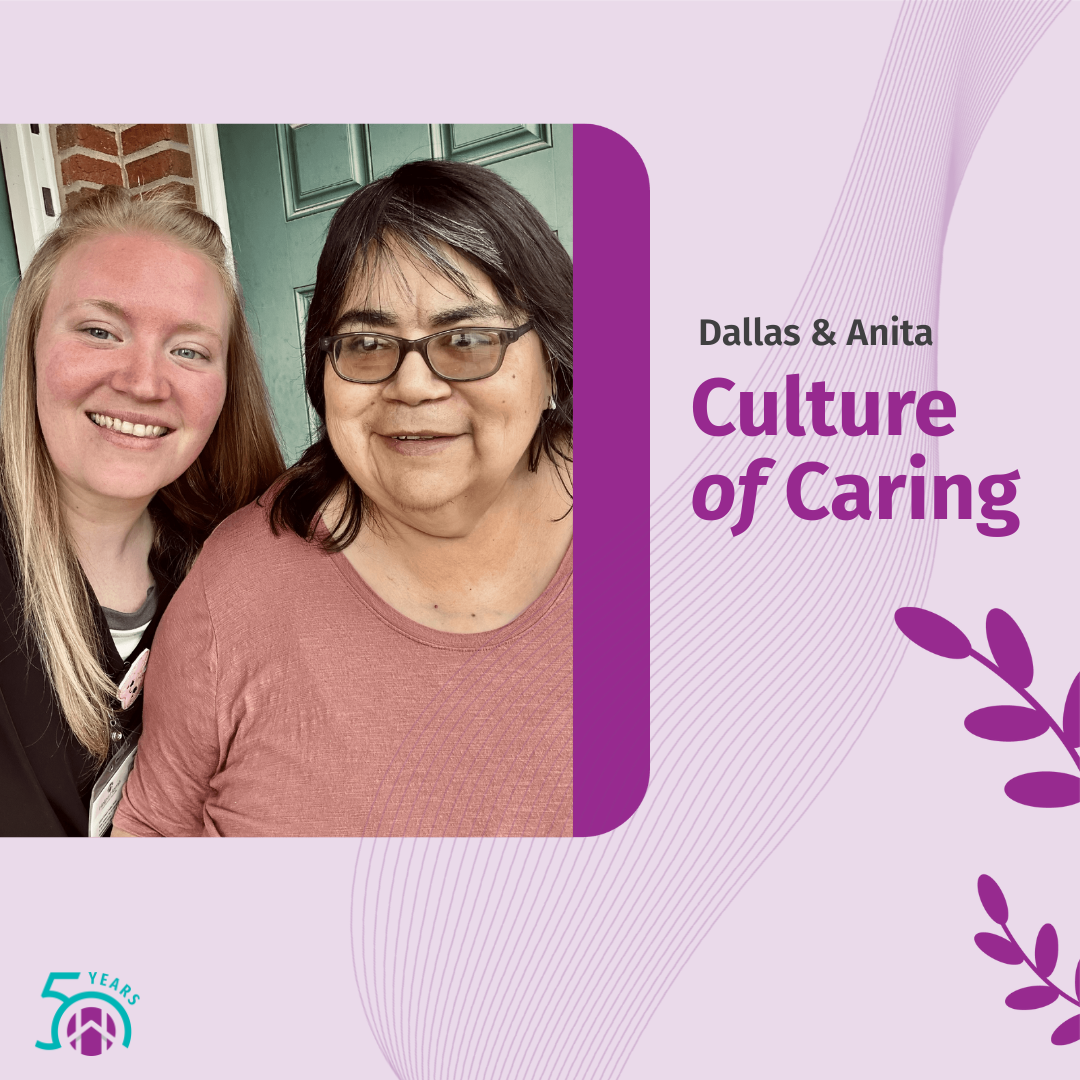Making a great match: The Caregiver/Client relationship is important

Like many caregivers, Dallas used to be nervous whenever she first met a new client. She didn’t know what their expectations would be – or what their personality would be like. But when Dallas first met Anita, they hit it off immediately.
“We talked the whole day,” Dallas said. “You would have thought we had known each other forever.”
Their ability to talk and laugh together brings joy to the day as Dallas is cleaning Anita’s home in Corydon, Ind., or doing her laundry. Even routine outings like going to doctor’s appointments can be fun. They enjoy eating lunch and going to the store together.
Now, nine years later, she says even her son knows Anita and considers her like an aunt. “We are way past the ‘I’m just a caregiver.’ We’re family at this point.”
In-home caregiving provides vital care for people who would otherwise not be able to live independently. This varies from client to client, but can often involve help with cleaning, laundry, meal preparation or personal hygiene. Help at Home works hard to find the right caregiver for each client – based on schedule, location, traditions, language, shared interests and personalities. For example, Dallas and Anita enjoy having a chatty, personable relationship but some caregivers and clients might prefer a more quiet relationship.
Help at Home has a high rate of success in matching clients with caregivers, with the average caregiver/client relationship lasting 4 years.
These relationships are important beyond just the direct care provided. The CDC says that social isolation and loneliness can harm health – including raising the risk of heart disease, stroke, diabetes, and depression.
Dallas said that it’s important for caregivers to always remember that they are working in someone’s home. The client may have very particular ways they want things taken care of. Dallas said she even asks them if they would prefer that she wear scrubs or dress in regular clothes.
“This is their stuff, their furniture, their pots and pans, their kitchen towels – you are in their home. You need to be respectful of that at all times,” Dallas said.
“I’m sure there’s some things Anita doesn’t like having to say “I need help” on,” Dallas said. “She would love to just be able to do it herself, but I hope she always knows ‘it’s ok, I’m here. This is why I’m here.’”
Anita said Dallas always puts her at ease.
“Just this past week, I had to ask Dallas to do something for me, and I was embarrassed,” Anita said. But she appreciated that Dallas was matter-a-fact and agreeable. “She walked me through it and… it didn’t feel strange.”
Dallas said that is what it’s all about. “I’m here just to make her life a little bit easier.”
